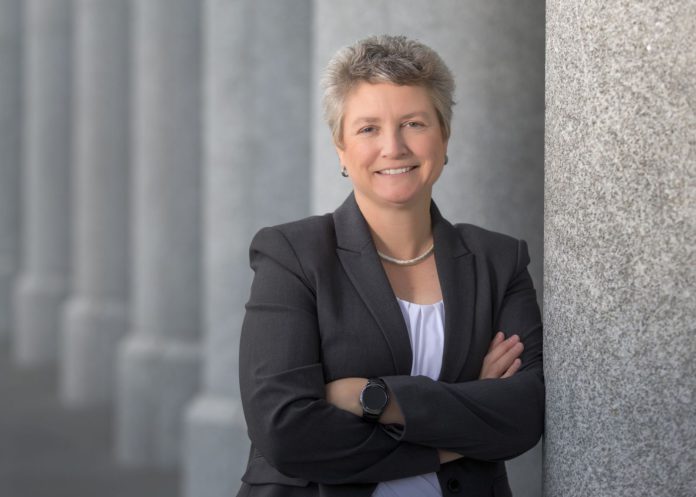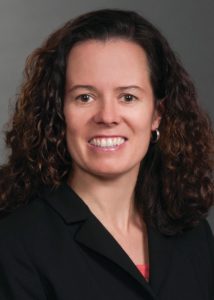

With a new addition to the Colorado Rules of Civil Procedure that took effect July 1, the Office of Attorney Regulation Counsel is hoping to create awareness among the state’s lawyer population about the guidance that regulations provide for continuing legal and judicial education requirements.
Deputy regulation counsel Dawn McKnight said the process originally started with the intention by the Supreme Court’s Continuing Legal and Judicial Education Committee of amending Rule 260, but the changes ended up so significant that ultimately Rule 250 completely replaced it.
“The rules set the framework, and the regulations really provide more of the guidance,” McKnight said. The OARC recently published a list of frequently asked questions about Rule 250 to highlight the guidance attorneys can get from regulations. While the rule itself provides an overall compliance structure and mandates continuing legal education, the regulations provide guidance on how continuing legal education is accredited and lay out the types of activities for which attorneys can receive credit.
As Attorney Regulation Counsel Jessica Yates put it, noncompliance with the rule is what can lead to an administrative suspension, while regulations lay out how attorneys can obtain their CLE credit to stay in compliance.
“They contact our office for guidance when the regulations will let them know actually what the answer is,” McKnight said. “We’re really trying to do outreach and going to improve a lot of things on our website to really get the attorneys to take a look at the regulations.”

As one significant change, Yates said Rule 250’s regulations now allow law firms to offer state CLE credit when they put on internal programs that outside attorneys are not invited to participate in.
Rule 250 contains clarifications about exemptions from CLE requirements, such as exemption for a compliance period during which an attorney is deployed in active military service outside the U.S. The new rule also raises the age requirement for exemption from 65 to 72. McKnight said the rule also clarifies requirements for attorneys moving between inactive and active status. While lawyers who are inactive or under suspension for an entire compliance period are exempt from CLE requirements, moving from inactive status back to active does not preclude them from completing CLE credit.
PRO BONO WORK
Rule 250 expands the type of pro bono work allowed for CLE credit, which lawyers can receive nine credit hours for every three years, from only civil matters to include criminal legal representation. McKnight said attorneys have done pro bono work in death penalty cases and representing individuals detained at Guantanamo Bay.
“Under the previous rule, they wouldn’t be allowed to earn pro bono credits for that work, and so that would change now,” she said.
Pro bono criminal work still has to meet certain requirements under Rule 250 to be eligible for credit: The client has to be financially eligible for pro bono representation, and the matter must be assigned to an attorney by a court, bar association or program sponsored by the Access to Justice Committee, a law school or a recognized nonprofit.
INDEPENDENT STUDY
McKnight said Rule 250’s regulations provide more flexibility in the types of professional development eligible for independent study credit. Independent study can comprise only 9 credit hours of lawyers’ 45-hour requirement, for each three-year compliance period, but McKnight said the change provides increased flexibility for lawyers to decide what’s best for their own professional development.
“[The committee] felt that many times attorneys want to attend programs that they themselves have decided is best for their own professional development and help them with aspects of their firm, but because of the traditional definition of continuing education, some of those programs have never been accreditable in Colorado,” she said. Under the new regulation, attorneys can receive independent study credit for teaching as well as participation in access to justice clinics offered by bar associations and the state judiciary.
“I think for many attorneys, this will be extremely helpful for them to know that they can get some credit for those types of activities,” McKnight said. She added the OARC tends to receive more submissions from attorneys for credit from teaching than any other type of non-standard CLE, while pro bono tends to be the least frequent.
Programs that address leadership, diversity and inclusion and attorney well-being are also now officially eligible for credit, she said.
McKnight said she hopes Rule 250 and its regulations will encourage attorneys to think in advance about how to meet their CLE requirements for each compliance period and plan for what best suits their professional development. “The goal of the committee was to find a way to help ensure quality programming is being offered, but also some flexibility for attorneys knowing and understanding that sometimes they know best for themselves what they should be doing in regards to their own professional development.”
—Julia Cardi

